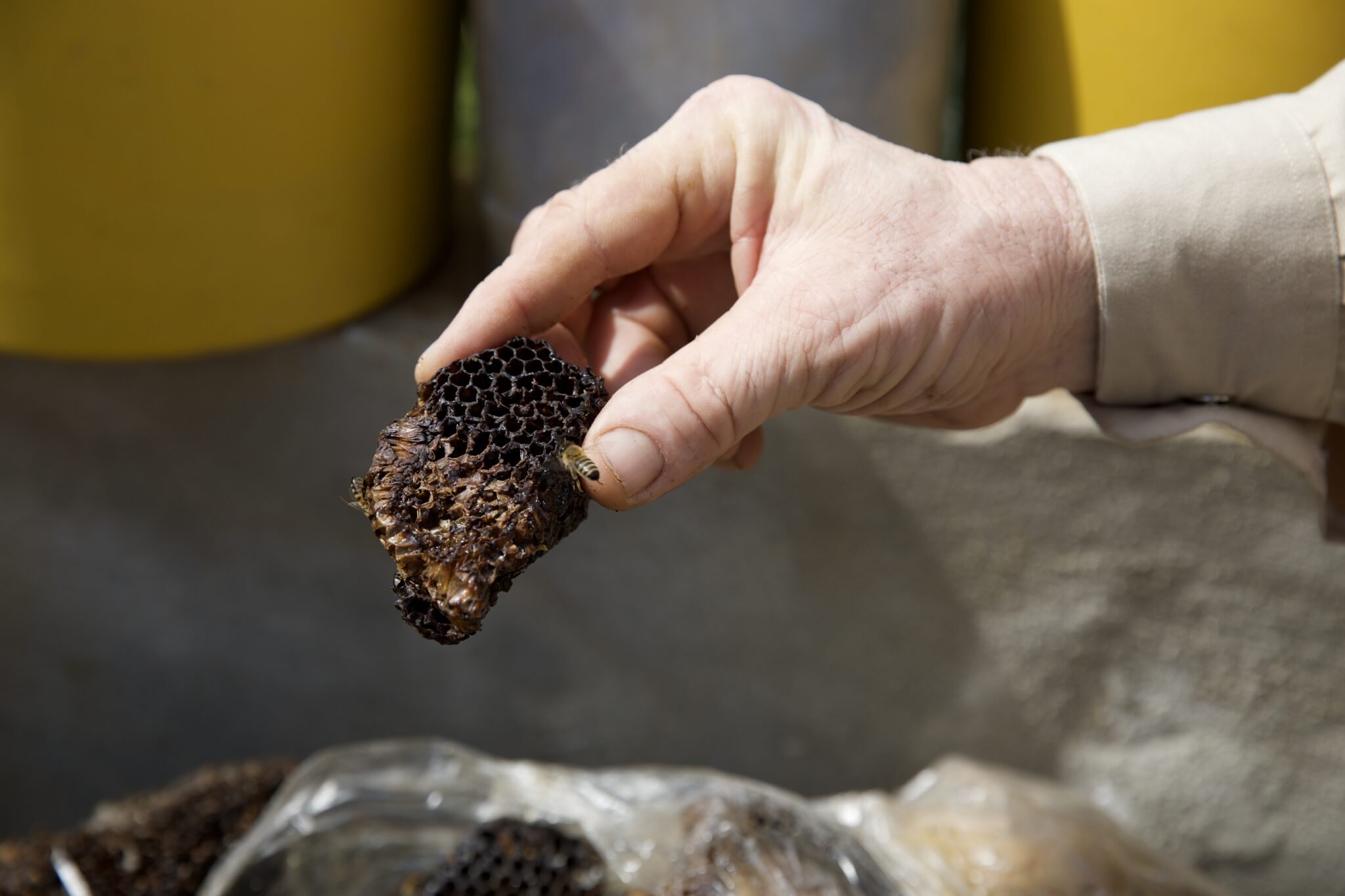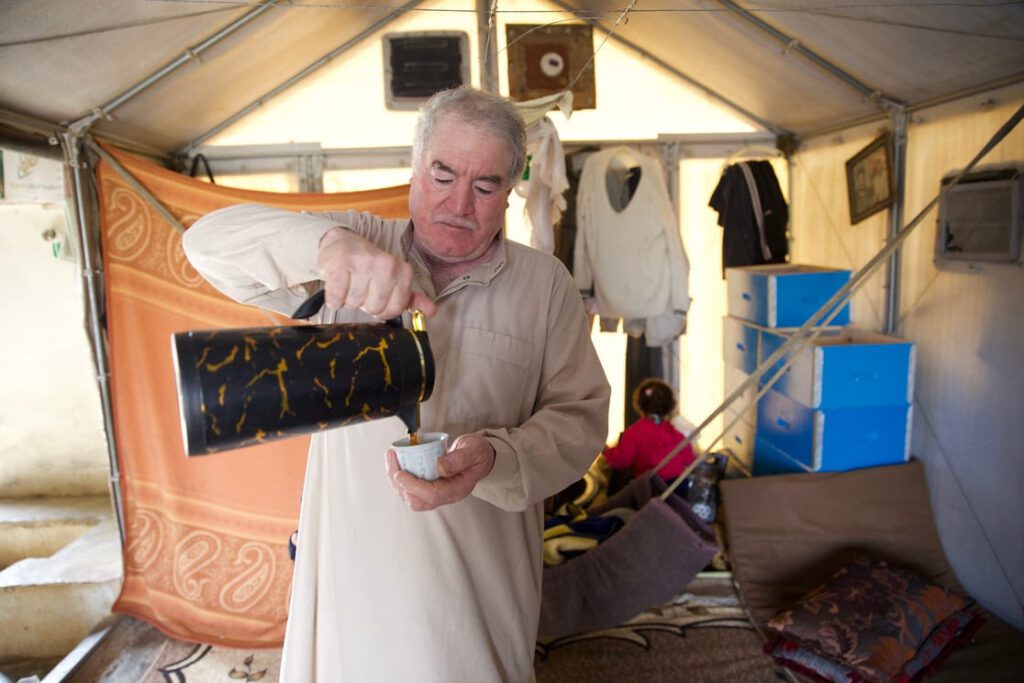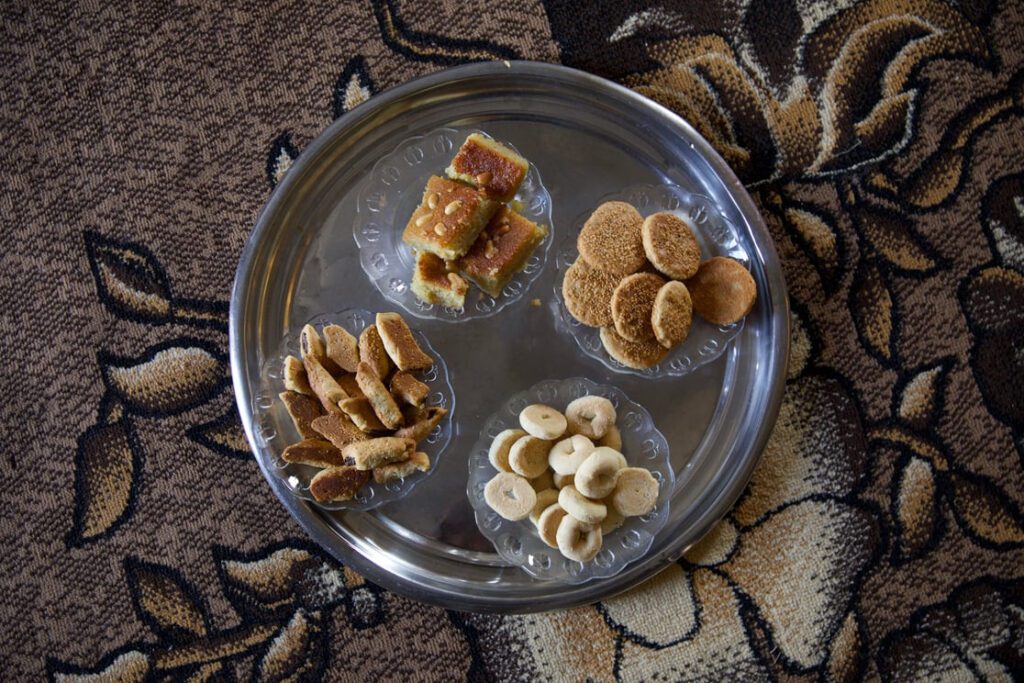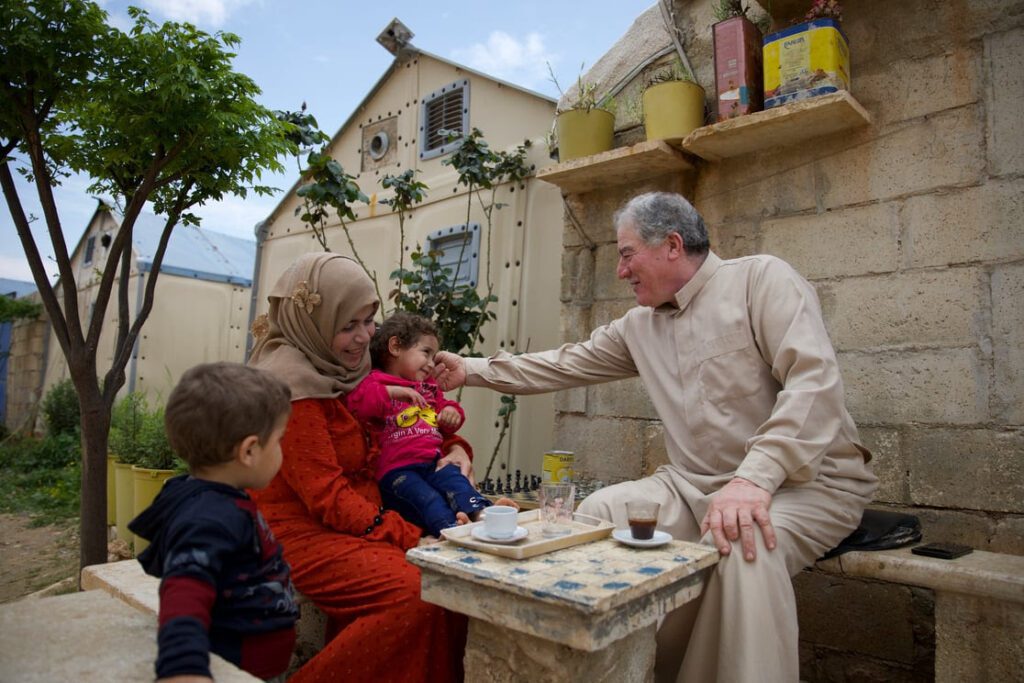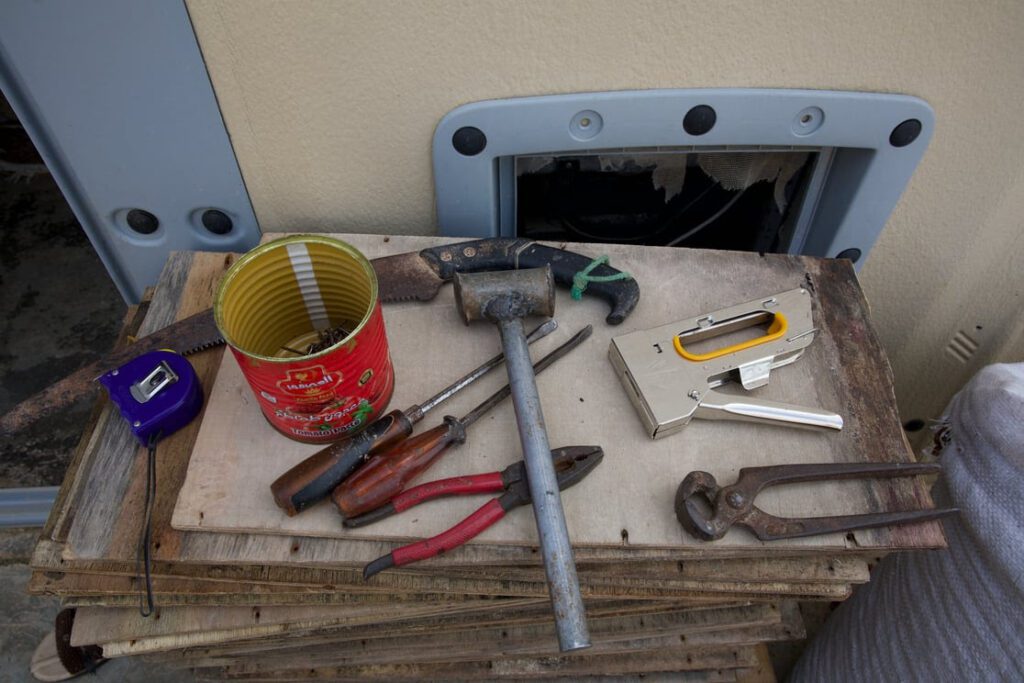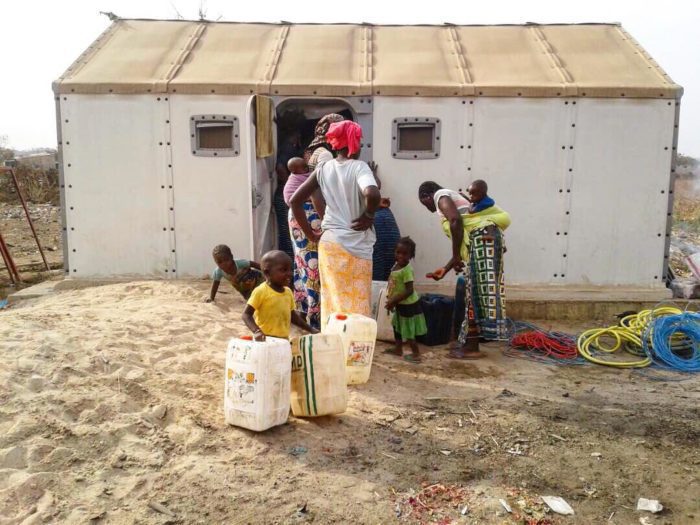IDLIB, SYRIA, APRIL 2024. Sixty-three-year-old Ali stands in the backyard of his temporary home, looking towards the horizon. He keeps his beehives over there, in the flower fields at the foothills of Idlib’s western countryside. “Working with bees is fun and full of wonders,” he says.
Ali has been a beekeeper for over thirty years. The bees, he says, bring “inspiration and love.” Ali admires their orderly communities and hard work, even in the most challenging circumstances.
The bees’ presence can be felt throughout Ali’s shelter—not just in the hive panels and wax moulds scattered around, but also in the comfort and homeliness he has hard-won through the crises of displacement and war.
 Photo by Ali Haj Suleiman
Photo by Ali Haj Suleiman
On the day of Eid al-Fitr, at the end of Ramadan, Ali makes bitter coffee and traditional Syrian biscuits stuffed with dates and nuts as he awaits the many neighbours and friends who will celebrate with him. Little girls in sparkly pink dresses with matching bows in their hair poke their heads around the door to call out an Eid greeting.
Ali’s visitors are unsurprised to see so much beekeeping equipment in the shelter. He has stayed here for three years and is well-known. But his refuge and the loss of his land and possessions have not destroyed his optimism or deterred his active pursuit of hopes for a better future.
 Photo by Ali Haj Suleiman
Photo by Ali Haj Suleiman
“Staying on was impossible,” Ali says of his home village, Maarat Hormah, in Idlib’s southern countryside. He left the home he had built himself, where he had lived since the 1990s, with just two possessions: a photograph of himself with his son and his beekeeping kit.
Ali was displaced more than ten times before he moved to this camp.
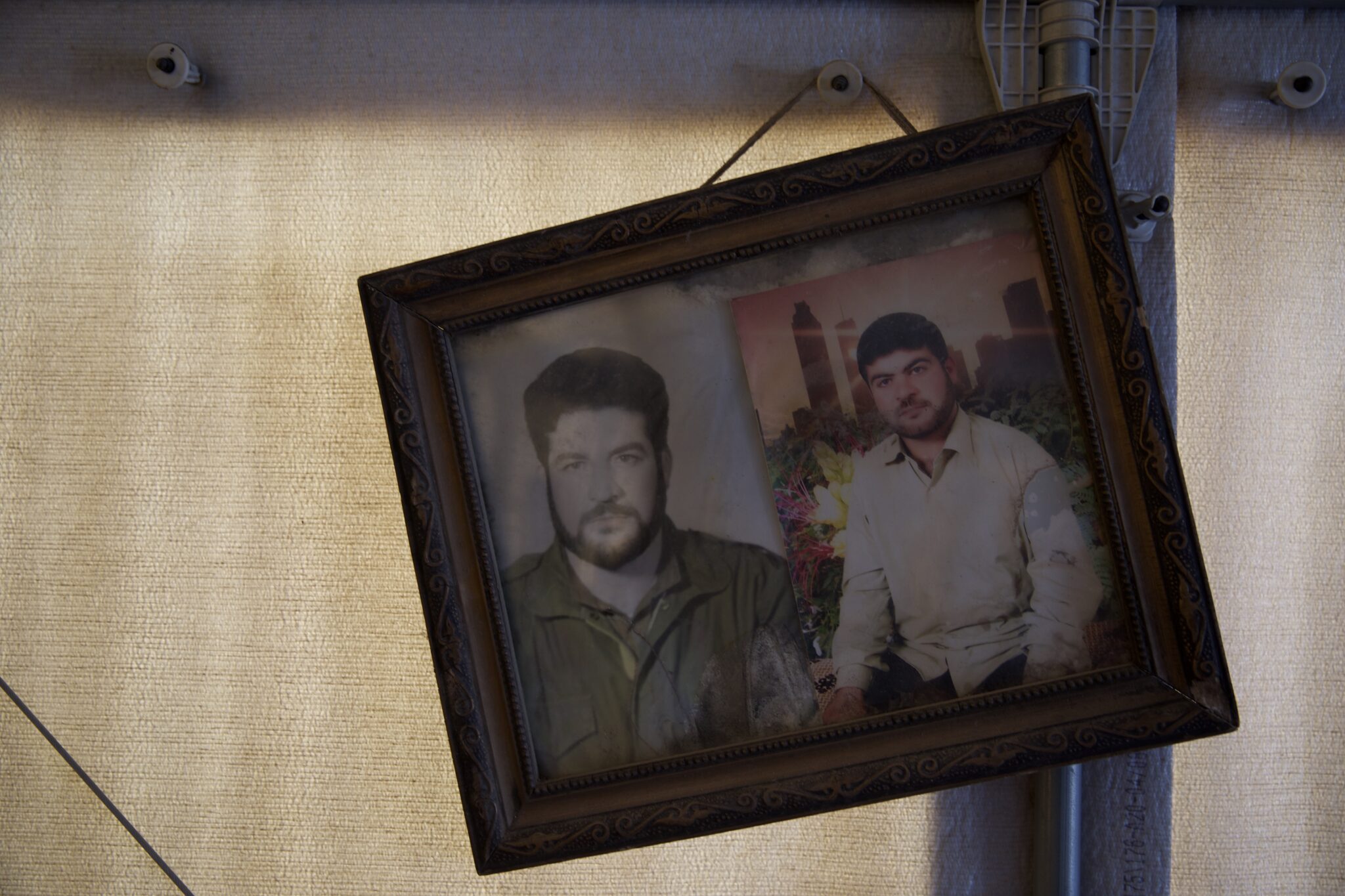
“When I came here, I felt that I was at home for the first time since I had left Maarat Hormah.”
Ali
He hung his photograph on the wall and began modifying the shelter to make it his own. He paved the floor and built flower beds around the shelter. He set up a small kitchen, a backyard, and a place near the main door where he receives guests. “It’s an area for receiving people who may be in a hurry and don’t have time to come in. Receiving guests, hosting, celebrating – that is what I’m good at!”
 Photo by Ali Haj Suleiman
Photo by Ali Haj Suleiman
For Ali, home is stability. Despite his flexibility and the adaptations he has made, he still dreams of the smallest details of his former home, where he was surrounded by friends and loved ones.
“When we were displaced, even the stone on the roadside became valuable to me. I think about it now when I try to sleep – this stone on the edge of the road outside my house.”
 Photo by Ali Haj Suleiman
Photo by Ali Haj Suleiman
The bees and all their equipment traveled with Ali through the long journey of displacement. “I couldn’t give up any of my bee care kits,” he says. He used to own 750 hives, but when the war intensified, and he had to flee, this number dwindled to 180. Only thirty hives made it to the camp.
Harvesting honey and caring for bees have become family activities in Ali’s household. His wife and adult children all know how to tend the hives and are used to being stung.
Ali loves to promote beekeeping as a calling. In his home village, he supported dozens of people entering the profession which nobody had previously practised.
“When I die, I will pass my beehives on to my children.” As Ali gazes toward his hives, even after all these years, he says he holds onto his childlike amazement at the bees’ precision and their tireless, steady work.
And his hope for the future remains.
“We will return, and we will rebuild what was destroyed in Syria.”
Ali
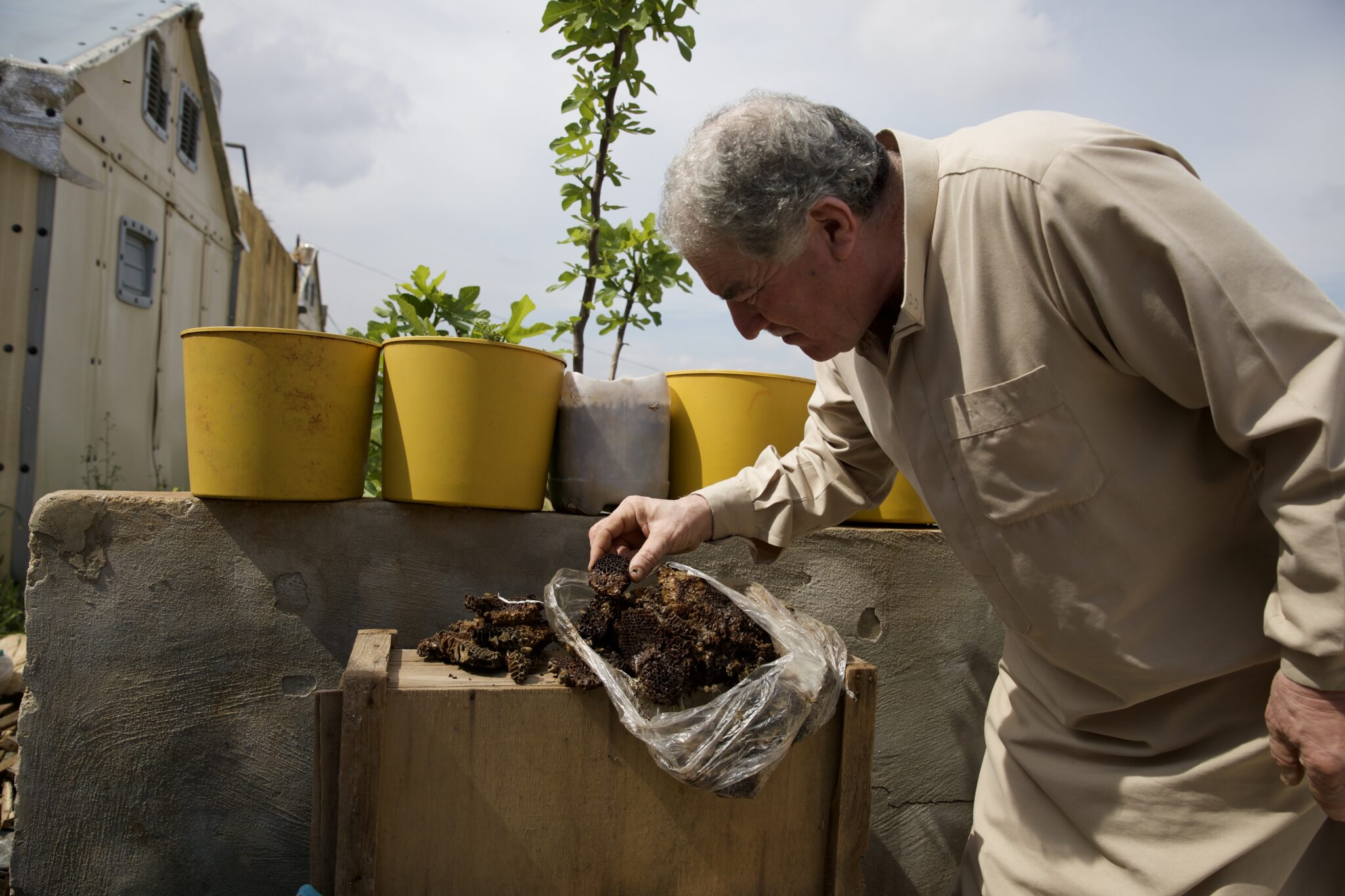
Idlib, Syria, April 2024. Photos by Ali Haj Suleiman
From the photo project What Makes a Home by Better Shelter

